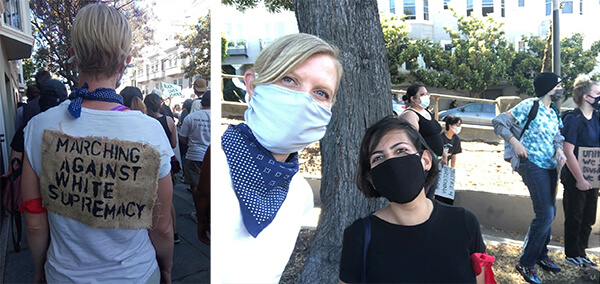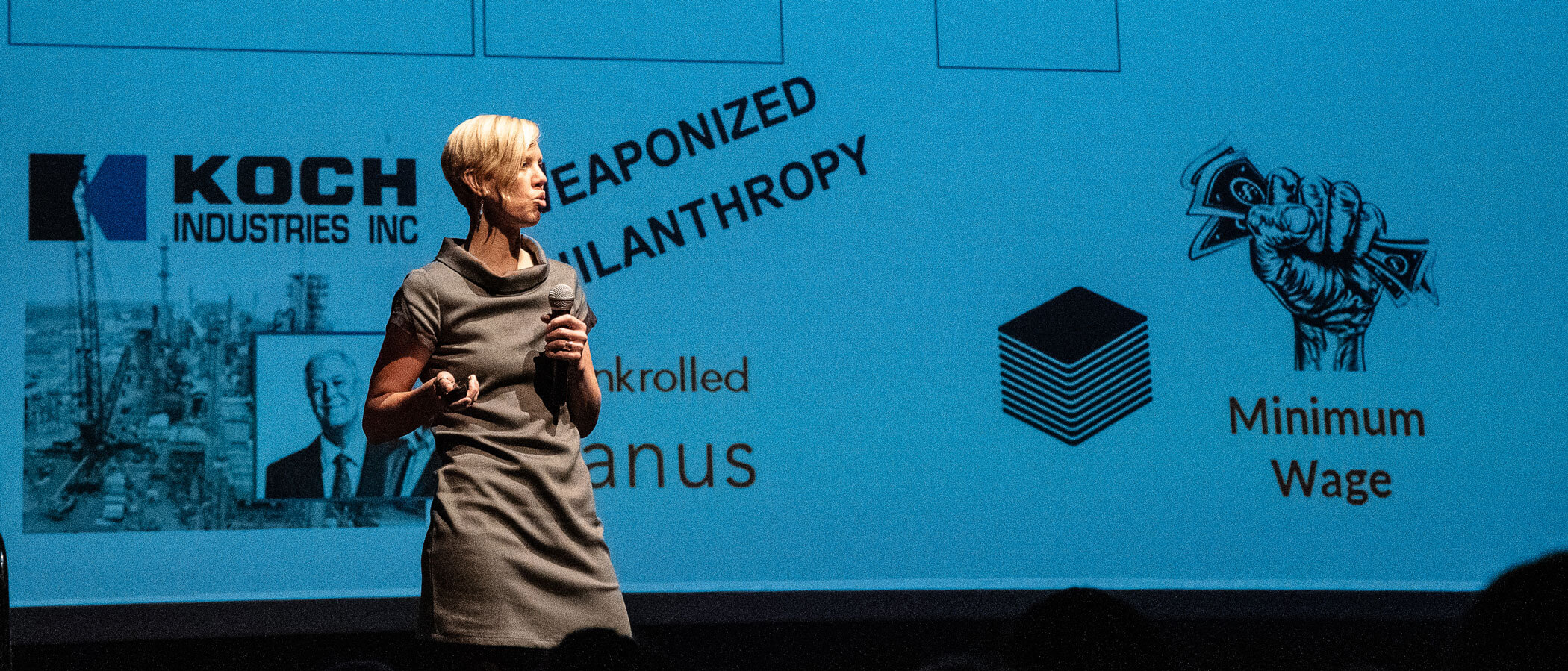I recently sat down with Professor Andrea Prebys-Williams to learn more about her academic journey from Presidio student to faculty member. and we also discussed the value of Presidio’s online Master of Public Administration degree program in cultivating the type of leadership that our public and social sectors urgently need. Here is our conversation.
Maggie: Andrea, we’re grateful to have you back teaching at Presidio, and particularly for our online MPA program. What is it that originally attracted you to join the faculty at Presidio Graduate School?
I first became involved with Presidio Graduate School as a student. I graduated with an MPA and MBA at the end of 2018 and had the opportunity to TA a course in the MBA/MPA Dual Degree program during that time. After graduating, I was a supporting faculty for a leadership course and a co-instructor for Civic Leadership, Diversity and Systems Thinking and am grateful to be teaching the new course, Leadership in a Social Context. I joined as faculty because I believe in Presidio and what it stands for, and the school’s commitment to being a more equitable and just educational institution and to leading differently. Since I have been involved with the school for a number of years in different capacities, I have seen it evolve, sometimes on a rather rocky path; however, I am committed to the mission and have a lot of confidence in what the school can become.
Getting to meet the new cohort and hear their experiences and passion has reinforced how remarkable and unique this school is. And certainly, last but not least, getting to partner with Loretta J. Ross in the development and teaching of this course has been an honor; her work in the human rights movement and reproductive justice for decades is a phenomenal example of leading with integrity and values. It has been a joy working with her.
Maggie: What are the main takeaways you hope your students will carry with them? What are you most excited for them to learn?
It is a pivotal moment to be teaching a course on public service leadership as we are witnessing some of the most racist and devastating examples of what happens when those in power use their platform to further white supremacy, corporate interests, and militarism (at home and abroad). The ongoing terror inflicted against Black communities, API communities, Palestianians, and trans folks are a forceful reminder of what is at stake and the need for a leadership vision that protects and humanizes all of us.
Simultaneously, we are witnessing some of the most beautiful and courageous leadership—such as the Black-led and youth-led mobilizations in response to the murder of George Floyd that were instrumental in returning a guilty verdict for Derek Chauvin. We have seen other strong examples of leadership through the Sunrise Movement, community-led mutual aid networks during the pandemic, the Squad, the Indigenous-led fight to Stop Line 3, and the Palestinian-led fight to save Sheikh Jarrah, to name a few.


I hope students move forward embracing the principles of anti-racist public service, human rights standards and their application, and servant leadership in the public and nonprofit sectors. In the course, we examine the underlying values present within the systems that shape leadership. We learn about leadership development through a historical context, while also bringing concrete tools to advance practical leadership skills and personal development. It is not a leadership course intended to simplify leadership and leave students with a “Top 10” or “How to…” list for leading, but instead, to invite students into the messiness of leadership in today’s age and to explore those topics with us.
Maggie: Our public and social sectors urgently need a new type of leadership to bring us into a flourishing future. What mindset and skills do public and social sector leaders need now? How does your course shape the type of leaders the world needs today and tomorrow?
Some of that I spoke to above; however, what this makes me think of is how urgently a dialectical approach is needed to broaden our ideas of changemaking within our current context and that critical thinking, dialogue, and self-reflection are fundamental skills for leadership.
I agree we need a new type of leadership and I think it is important to recognize that we are seeing it. It is happening all over (and has been for a long while). There are many examples of leaders who are choosing to lead differently, with a distinct style of leadership and a fierce commitment to shared values. I live in Oakland and earlier this year, Councilmember Nikki Fortunato Bas was elected as Council President, and she is a powerful advocate for working people and the community. She is joined by other progressive voices on the council, who have shown a real commitment to our community’s needs. In the course, we will be bringing in these real-life examples through our course readings, our guest speakers, and our class discussions.
Maggie: What would you like to say to people who are considering earning an MPA degree at Presidio? Why should they come here?
I am happy to share about my experience deciding to attend. Making the decision to go to graduate school is not an easy one and it is not one that can be taken lightly, at least it wasn’t for me. If I am being totally honest, it was three incredibly challenging years. I worked the entire time I was in school (consulting and with the union), I made some pretty big compromises to come to Presidio. I am aware of what some students are giving up to be here. For those who are working, or have kids, or are juggling all of the challenges of life, it won’t be easy. While all of that is true, there is so much I gained from attending—my community grew tremendously, and I have lifelong friends, one that I work with regularly. I learned a ton and my skills and capacity improved significantly. I am thoroughly appreciative for the experience and thankful I decided to attend.
If you are considering attending, that is exciting! I encourage you to reflect; talk with family, friends, and your community; attend an info session; and talk with alumni, students, or faculty about it. And if you decide to attend, I look forward to having you in class.
Want to learn from other distinguished leaders and activists like Loretta Ross and Andrea Prebys-Williams? Explore our Master of Public Administration, Master of Business Administration, Dual MBA/MPA Degree program, and Certificates, and get in touch to start a conversation.

